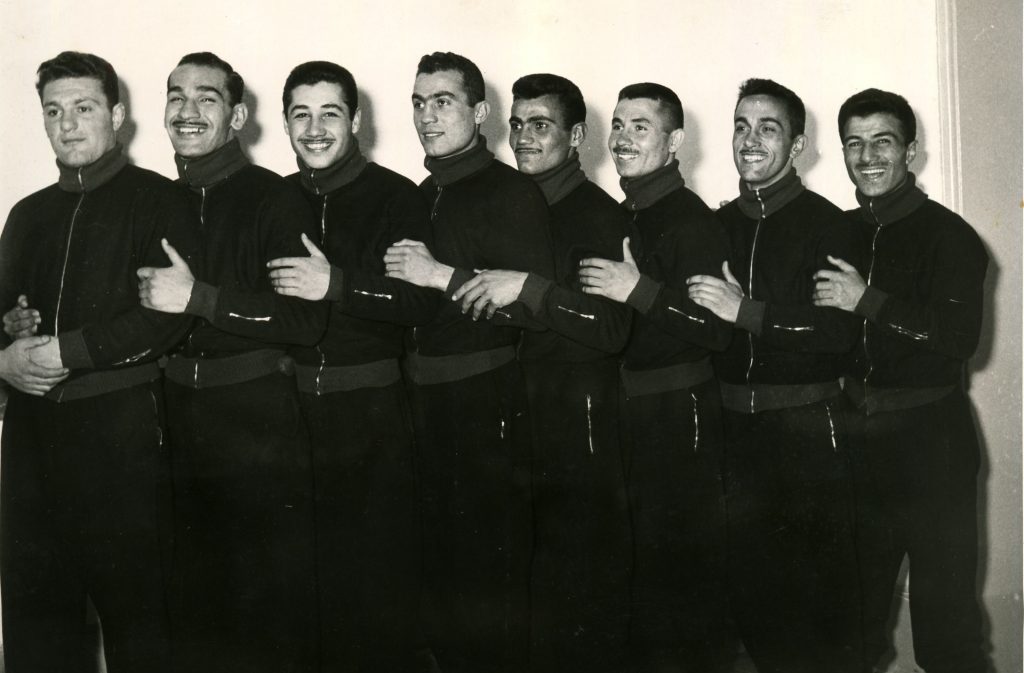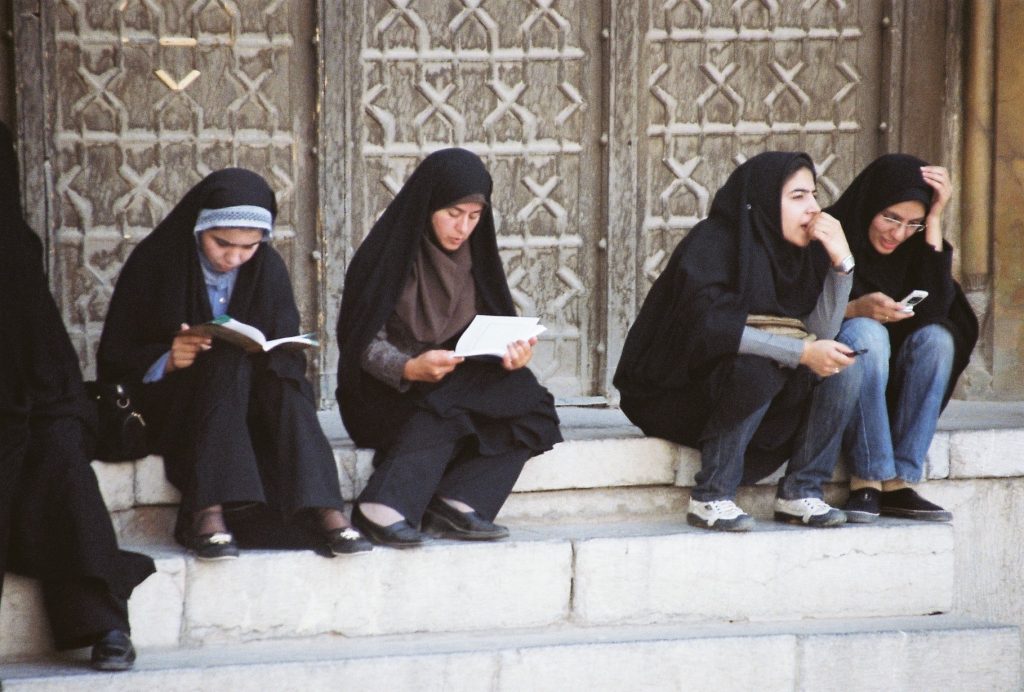Immigrants are a special breed. Whether migrating because of political, economic, or other circumstances or simply because of a desire for change, an immigrant is thought to be uprooted from one culture and transplanted into another. However, neither the uprooting nor the transplantation is usually a complete process. For a voluntary immigrant as well as a forced exile, a positive effect of this transplantation might be enjoyment of what the two cultures can offer. But often this phenomenon, instead of creating a combined or hybrid identity for the immigrant, results in a schizophrenic identity; rather than having a sense of belonging to both cultures, the immigrant, particularly the exile, feels that he or she has left his or her natural environment without being able to establish “roots” in the new culture.
Unlike people from many other cultures, Iranians seem to have been traditionally reluctant to immigrate to other countries, especially in large groups. In the New World, for instance, although there were immigrant communities from the Middle East dating back at least to the nineteenth century, before the Islamic Revolution in Iran in 1979, the number of Iranian immigrants was sparse, and there existed no identifiable Iranian immigrant community in the United States or other parts of the American continent. Historically, the only notable emigration of Iranians (excluding the exodus of those who refused to convert from Zoroastrianism to Islam after the Islamic invasion in the seventh century AD and who fled to India) was the departure of intellectuals and poets for India when the Safavids established their theocratic rule over the country, making Shi‘ism the official state religion.
Since the Islamic Revolution, the number of Iranians who have left their homeland and settled in various parts of the world, particularly in Europe and North America, has been significant, amounting to several million people. Because this is the first Iranian mass immigration, these new immigrants face many of the psychological and cultural challenges common among all immigrant communities. Although by and large these Iranian immigrants are either highly educated or relatively affluent and therefore do not face the economic hardships encountered by many other immigrant groups, lack of historical experience as immigrants as well as their conscious or subconscious efforts to distance themselves from their homeland, or the government of their homeland, that is presented in the media as a “pariah” and “sponsor of terrorism” have brought them a sense of alienation and rootlessness.
Despite the advantages of “transplantation” for many of the voluntary immigrants, the struggles of the relatively more recent, especially older Iranian émigrés, in trying to cope with their new cultural environment, have preoccupied some scholars with questions pertaining to immigrants in general, especially questions of identity, assimilation, and the yearning on the part of the forced émigrés to return home someday. These are some of the questions that Shahrokh Meskub deals with in his 1992 book Goftogu dar Bagh (translated as Dialogue in the Garden in 2001).
Dialogue in the Garden is an intellectual conversation between a writer and a painter regarding various aspects of Iranian culture, art, literature, language, history, and identity. Even more importantly, perhaps, these two intellectuals discuss the concept of the Persian garden in general and Paradise in particular, both in the concrete and in the abstract sense. On the subject of exile, in the final part of Dialogue in the Garden, the story of a boxing champion and his friend deals with the presence or even the fear of the loss of this abstract garden or Paradise. The writer relates that one night he visited Vazgen, the former Iranian boxing champion, who had ended up ten or twelve years earlier in the United States and now lives near Washington, DC. Vazgen has grown up in the working-class neighborhoods and streets in Tehran and “talks as if he just left his gang of street-smart roughnecks [jahel] in the Darvazeh Dowlat area or the Amjadiyyeh Square yesterday, in a thick Tehran dialect.”
In the United States, after several years of working as a laborer and errand boy, Vazgen finally became a boxing coach for the police and worked for a couple of years in other places until he was told one day that they were out of funds, and he was laid off, with a commendation and proposal for a part-time job as a children’s boxing coach, just one or two hours a week. Expressing his frustration regarding having lost his previous status as a champion in Iran and his present circumstances in the United States, he tells the writer:
Think of it, man, I was a champion for ten years. I won two gold and four silvers for Iran. I’m talking about world, forget national. Rome Olympics, the Asian Games. Now, beginners class, and for kids at that! Thanks a lot, give it to somebody else who wants it. Do you know Billy? Billy Andrew? Here, this is his picture, with his fiancée. He’s a coach, too. He lives close by on the other side of the river. He’s got a big mansion; he’s a millionaire.
When the writer asks him what Bill Andrew does for a living, surprised, Vazgen answers:
“What does he do? Hey, he was a champion boxer!” The writer asks if he was a US champion. Comparing his own situation as a former champion to that of Bill Andrew, Vazgen replies: “No, man, world! He’s my buddy. I was his coach once. He gave me the picture himself. Now I’m supposed to be a nanny for a bunch of kids. I said, no way, you can have your job.” When Vazgen is asked what he does now for a living, he answers:
I work in a supermarket warehouse, forty miles away. I go forty and come back forty every day. After two years, it is getting tiring. Especially coming back. In those days, I didn’t know the meaning of tired. I swear to you, the more I stayed in the ring, the better I felt. My left would never miss; whoever got it would be down on the ground. I’ve had forty-two knockouts, all with the left.
Then, standing up and assuming a boxing posture, Vazgen jumps up and down on his toes and gives a left hook in the air and then continues with his story:
When they threw us out of Russia, they had told my father, either become a citizen or get lost. He said that he would get lost. They put him in jail and kicked my mother and me and my sister out. I was four; my sister was nine. When Mamma got to Iran, she didn’t know the language and didn’t have a cent. The relatives were around Reza’iyyeh. My Mamma raised the two of us empty-handed by working. I don’t want to say how. My sister came before me. She had had it and didn’t want to stay. She said, I’m a woman and an Armenian, and work in the Embassy, too. No matter what we said, didn’t do no good. She’d lost her mind. She only said she had to leave. I left later, too, because Mamma couldn’t stand either of us being away from her. Otherwise, I was doing fine. I had a turnery with six or seven working for me. Who wants a turnery here? Everything is machine-made. When I was settled, I sent for my Mamma and brought her here, but she didn’t last more than a year, because she had been through so much. She’s buried right here. There’s a great cemetery here, very nice, clean, everything just right, with trees . . . it’s for everybody, no difference, Christians, Muslims, Jews. I wanted to show it to you before we got home, but I thought you might be tired. I took Mahin. I said, Mamma, this is Mahin that you loved so much. She just got here, wanted to see you. I knew you missed her; I brought her for you to see her. She’s gotten married, and this is her daughter. We stood by her grave for a while. Then I said, Mamma, I haven’t taken Mahin home yet, she just got here; we’re going. Bye!
The dialogue between the writer and painter and their philosophical discussions also revolve around the notion of Iranian collective identity. Collective identity is a very fragile thing, and its fragility is more clearly apparent when the individual’s sense of collective identity is threatened and shattered. This notion is tangible in the reminiscences of a Russian-born Iranian Armenian boxer, an exile in exile, whose acquired Iranian roots and identity are shattered once again.




